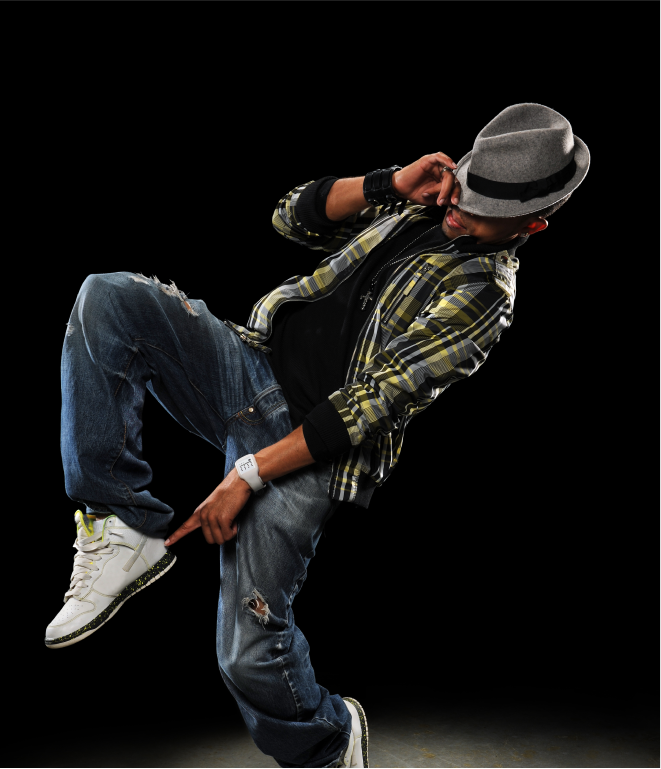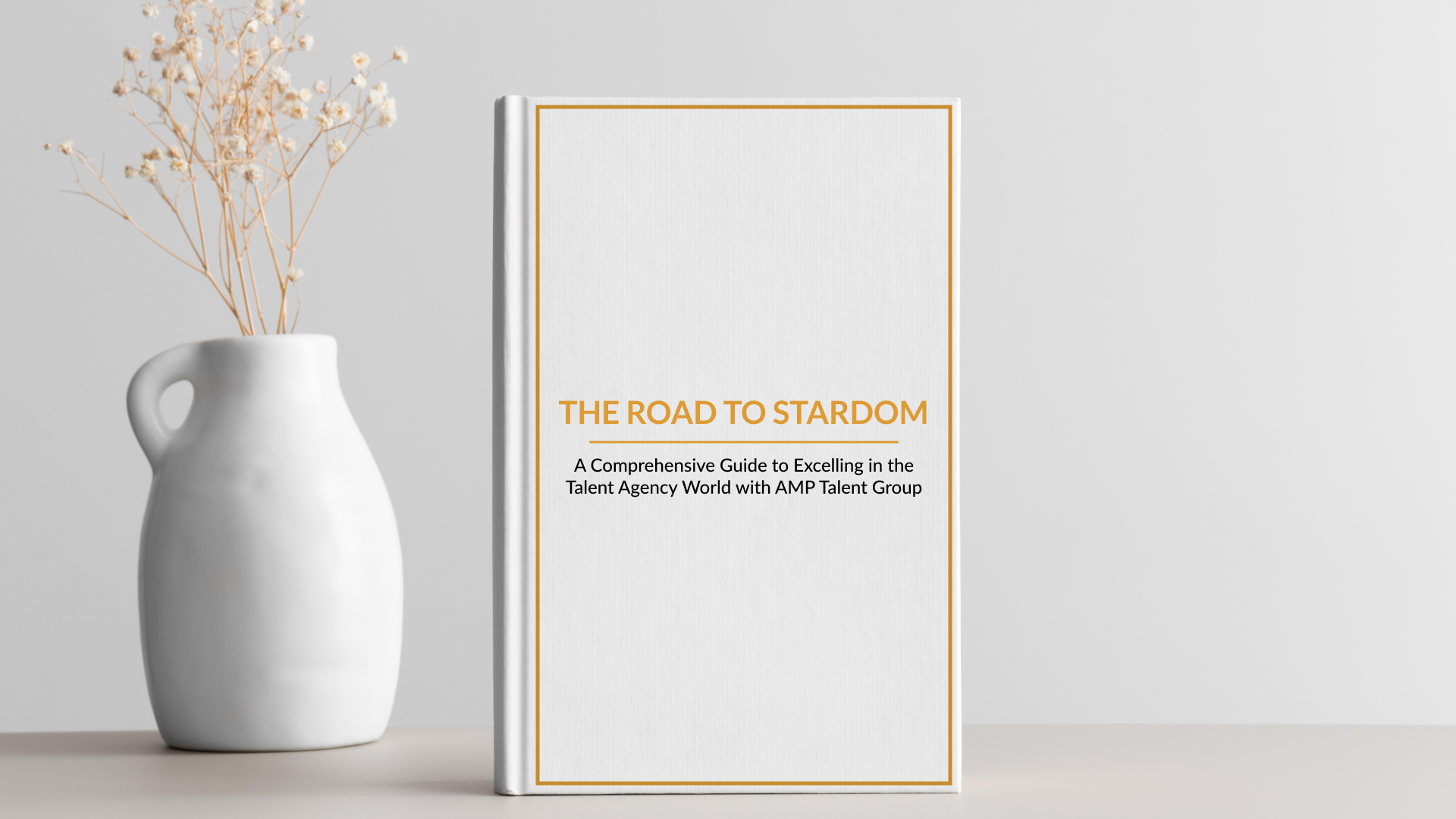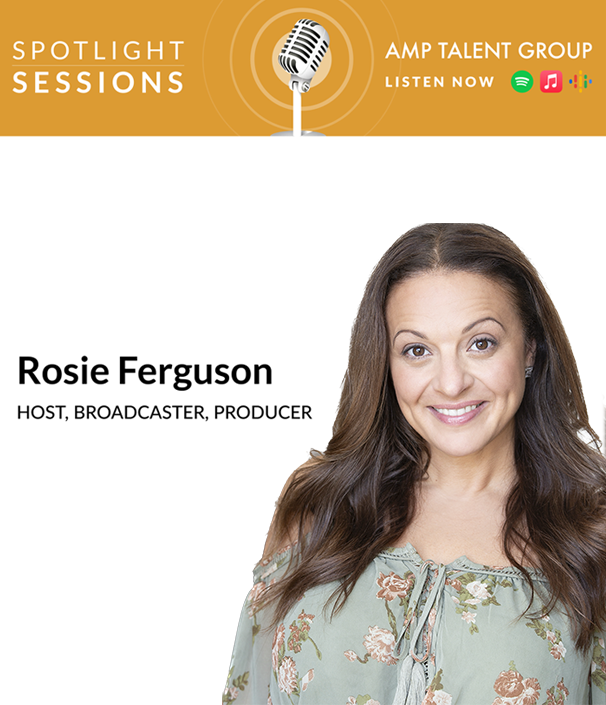5 Ways To Prepare For Your Audition
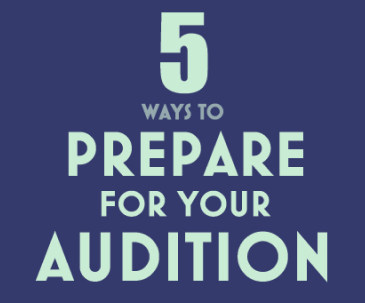
The truth is that some people can be great actors but terrible at auditions. There’s the pressure, the nerves, and the last minute notice that can sometimes eat away at a person to the extent that they completely flub their audition. This can happen over and over again to talented actors, who have a hard time booking any roles, or even getting callbacks because they were so nervous and uptight on the day of their audition. Some big name actors even used to struggle with their audition process, to the point that they took years before they even started booking gigs regularly. Aaron Eckhart is one of them — he said that it took years before he started getting called back from auditions because he was so bad at them. He said that it took his friend casting him in a short film before he was really able to overcome his nerves and anxieties in the audition room. And he’s gone on to build a hugely successful career in Hollywood, so there’s still hope for you yet!
So how do you overcome this? How do you adequately prepare for your audition in a way that gives you the best chance to succeed once you get in the audition room?
Here are 5 things you should do to make sure that you’re not a nervous-wreck and can begin to get yourself prepared when you find out about an upcoming audition:
Memorize your lines, but don’t over memorize your performance: During an audition, it’s easy for actors to become stiff and calculated because they are so afraid of screwing up that they have the entire performance of the scene mapped out in their head. This leads to a lack of flexibility in the scene, openness to discover new things about the scene and your character, as well as dropping out of the scene because you’re completely in your own head instead of being present in the moment. That’s why you should make sure your lines are memorized, but act out the scene in a variety of different ways so that you can continually keep surprising yourself with your performance. That way the scene is constantly evolving and changing. The scene should never be the same each time. You need to move and speak in a way that feels the most authentic in that particular moment. Also, you want to be adaptable so if the casting director asks you to perform the scene a second time, but this time in a completely different way than before, you’re comfortable and ready for it.
Understand your character and the circumstances they’re in: The lines that you speak are important, but what’s even more important than that is the character you’re supposed to be playing and the particular circumstance they’re in. Once you begin to get a grasp on your character and the obstacles they’re facing (IE. what’s driving the scene and what’s your character’s motive?) then you’ll be much more comfortable playing with the lines once you get into the actual audition. You can start to play with the type of voice they use, the little nuances in which they deliver particular words, and unique mannerisms they may possess. Then the actual lines you’re speaking will take on more layers and be delivered with much more power and authenticity. Also, by having a handle on the deeper issues surrounding your scene, the more relaxed you’ll be, the more you’ll listen to what the person reading with you is saying, and the less focused you’ll be on the actual words that you’re supposed to deliver and the more focused you’ll be on the emotion behind the words.
Choose the appropriate wardrobe: This should go without saying, but don’t dress in a suit if you’re going to read for a role of a college student, or a slacker, or a stoner. On the flip side, don’t wear shrubby clothes if your character is supposed to be a Wall Street trader. If you’re given sides beforehand, there should be a breakdown of the character you’re playing at the top, or on a different page altogether. It’s absolutely essential that you read through that carefully and understand the type of person you’re going to be playing. Also, what you wear to your audition is going to show the casting director how you interpreted that particular character. It will show that you read through all the information you were given, took the time and prepared, as well as brought in your own ideas and interpreted the character in your own way. That’s exactly what they want. They want to see what your interpretation of this character is. They want to see something different than they’ve seen hundreds of times already today.
Don’t over-prepare: What’s interesting is that a lot of actors will tell you that they ended up booking big roles from auditions they thought went terribly. They only got the sides last minute, or didn’t have time to prepare, and so they went into the audition expecting nothing to come from it. And then, boom! They end up booking their biggest role yet. This is because they didn’t over-prepare. They allowed themselves to play around and be loose in the moment. They didn’t put that extra pressure on themselves to book the role because they knew they had a scapegoat to blame: they didn’t have enough time to practice! They were more relaxed than usual, and just allowed the result of the scene to be discovered within that performance. Meryl Streep has a famous quote:
“Sometimes under-preparation is very good because it instills fear and fear is galvanizing. It makes you break out of yourself. If you’re prepared, then you think you’re ready, and if you think you’re ready, then you’re not ready.”
We’re by no means advising you to forget about your preparation altogether, because it’s definitely important that you prepare, but there’s something to be said for not being so rehearsed that there’s no room for spontaneity.
Be ready to jump and forget your preparation when the scene starts: You can rehearse and practice all you want, but when that scene starts, you’re going to forget about everything you did to prepare for it. It’s just going to be about being present in that moment. This again, goes back to the point about understanding your character and the circumstances (obstacles) they’re facing. If you know those deeper facets of the scene and the script then you’ll have a better chance of staying in the moment and driving the scene in the direction that you’re expected to. Sure it’s going to be a little nerve-wracking, your heart is going to flutter like a butterfly, and your palms are going to turn into little pools of sweat, but that’s what acting is all about. You want to be excited, a little nervous, and be able to deliver an exciting and enthralling performance. You just have to trust your instincts, go for it, and don’t expect the perfect performance every single time.
Like with anything, often the lead up is the most nerve-wracking part. You build it all up in your head, play out worst-case scenarios and catastrophic results, until you’re exhausted and freaked out. You have to find a way to relax, and put the appropriate work in, but most importantly, understand that it’s not going to go perfectly every time. There’s times you’re not going to feel good about your audition but you can always take pride in the fact that you did your best to prepare your A-Game for audition day. Who knows, the auditions you didn’t think went very well will probably be the ones you end up booking anyways.
Enjoyed reading our blog post? Share it with your friends and followers on social media! Thank you for your support!
Learning Center

9 Ways To Become A Better Comedic Actor
Whether you believe it or not, you don’t have to be a stand up comedian to be a good comedic actor. In fact, a good portion of the best comedy actors would be fish out of water if they ever tried st...
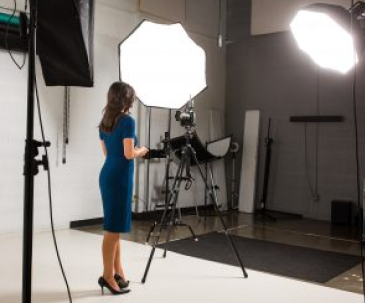
5 Insider Tips for a Successful Career in the Entertainment Industry
Breaking into the entertainment industry can be an exciting yet challenging journey. At AMP Talent Group, we understand the complexities and hurdles aspiring artists face....

5 Ways To Prepare For Your Audition
The truth is that some people can be great actors but terrible at auditions. There’s the pressure, the nerves, and the last minute notice that can sometimes eat away at a person to the extent that t...

Amplifying Horizons: The Global Journey of Excellence with AMP Talent Group and AMP it up PR
Explore the dynamic world of AMP Talent Group and AMP it up PR, where innovation meets global influence in the entertainment and PR agencies near me, industry. This blog post delves into their journey...

Amplify Your Brand: Discover Toronto’s Top Influencer and Public Relations Agency
Explore the transformative power of AMP it up PR, Toronto's award-winning influencer and public relations agency. Dive into our bespoke services in publicity, PR, digital marketing, and branding desig...

Mastering the Entertainment Industry: Your Path with AMP Talent Group
Dive into the heart of the entertainment world with 'Mastering the Entertainment Industry: Your Path with AMP Talent Group.' Whether you're exploring casting agencies in Toronto, seeking top talent ag...

Let The Dream Success Come Alive For Your Personal And Professional Ventures
Being a top talent, model, and branding agency situated in Toronto, Ontario, we at AMP Talent Group take great pride in our work. We understand that brands and public figures must have a robust online...

20 Years of AMP TALENT GROUP: Navigating the Evolution of Talent, PR, Digital, and Influencer Marketing
As the countdown begins to the much-anticipated year of 2024, AMP Talent Group talent agency and pr agency proudly reflects on an extraordinary journey that began in 2004. From our humble roots as a T...

Finding the Perfect Voice: Your Ultimate Guide to Choosing the Right Voice-Over Talent in New York:
In the bustling world of entertainment and branding, finding the perfect voice over talent agencies is a critical step toward creating memorable and impactful content. Whether you're producing commerc...

Elevating Brand Eminence: A Strategic Guide to Media Publications by AMP It Up PR, Your Leading Digital Marketing Agency in Toronto, New York, and Los Angeles
In the fast-paced world of business, establishing your brand as a household name demands strategic visibility in reputable media publications—online, in magazines, and across various platforms. This...

Decoding the Role of Digital Marketing Agencies: Unveiling the Magic Behind Success
In the dynamic realm of online promotion, understanding the functions of a digital marketing agency is key. Let's unravel the intricate tapestry of services these agencies offer and how they contribut...

Unlocking Success in the Digital Realm with AMP It Up PR
In the bustling landscapes of Toronto, New York, Los Angeles, and beyond, AMP It Up PR emerges as the beacon of distinction in the realms of PR and digital marketing. As an award-winning agency, our c...

Unleashing Your Potential: Essential Modeling Tips for Success
Welcome to the exciting world of modeling! Whether you're just starting out or looking to take your career to the next level, this blog post is packed with essential tips and expert advice to help you...

Unlocking Success: The Importance of a Well-Designed Website for Artists, Brands, and Businesses
In today's digital age, a strong online presence has become paramount for artists, brands, and businesses alike. It is no wonder that a well-designed website has become a powerful tool in unlocking su...
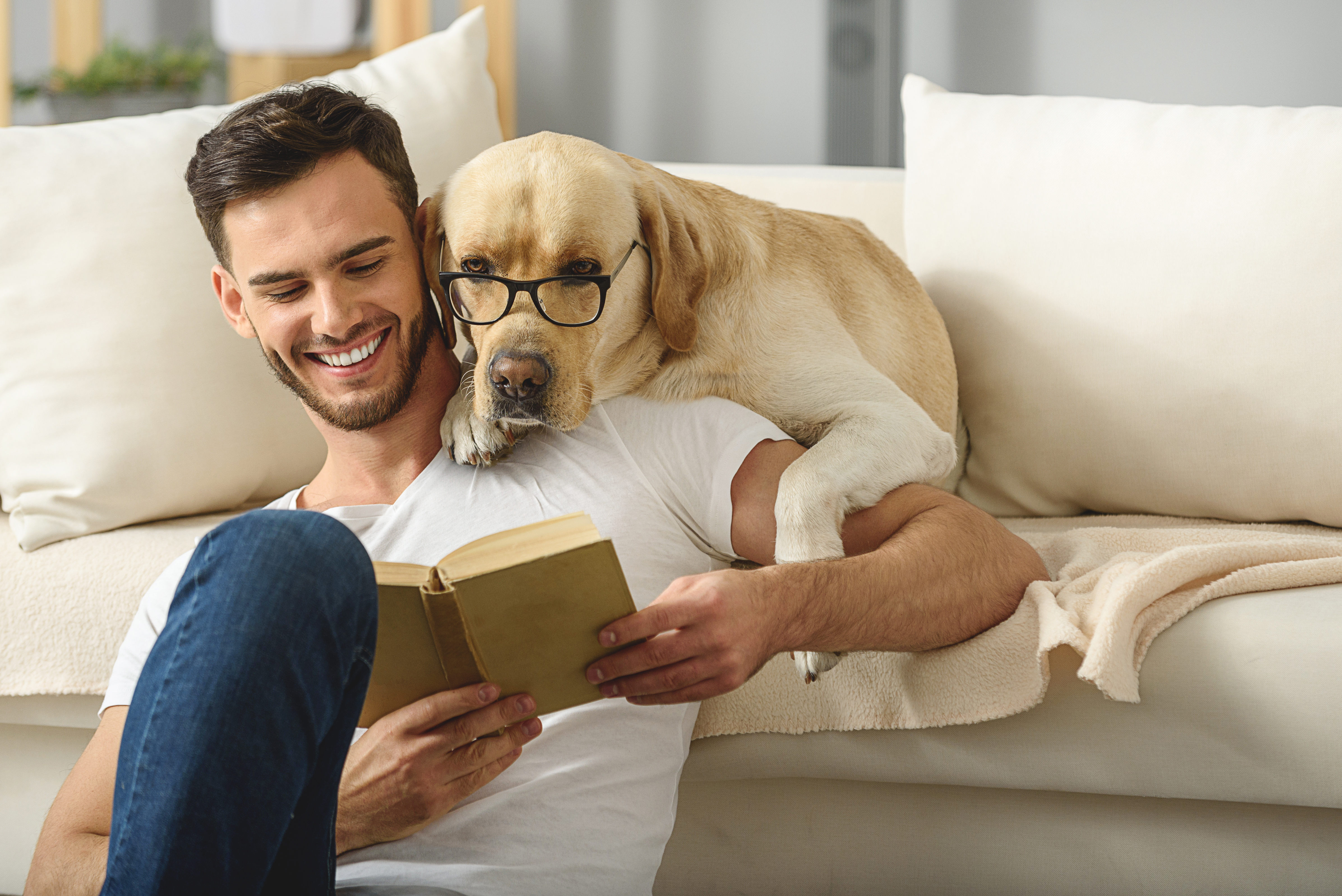
The Top 10 Must-Read Books for Aspiring Actors: Unleashing the Power Within
Are you an aspiring actor with the desire to take your craft to the next level? Whether you're just starting on your acting journey or looking for ways to further hone your skills, reading books dedic...

Unleashing the Power of Influencer Marketing: Ignite Your Brand’s Success
In today's digital realm, traditional advertising methods are no longer enough to capture the attention and trust of a savvy consumer base. As people increasingly turn to social media and online platf...

10x Your Business or Brand: Amplify your Reach with Media Publications and Publicity
In a highly competitive business landscape, it's crucial for entrepreneurs and brands to find innovative strategies that can propel their growth to new heights. One such strategy that holds immense po...

Unleashing the Power of Publicity: Why You Need a Publicist for Your Success
In the fast-paced world of business and entertainment, standing out from the crowd is essential. Whether you're an aspiring artist, a budding entrepreneur, or a seasoned professional, getting noticed ...

Lessons Learned: Our Journey as a Talent and Branding Agency
At AMP Talent Group, our journey as a talent and branding agency has been filled with valuable experiences and lessons learned. We are incredibly excited to share that our achievements have been recog...

Unveiling the Top Logo Branding Trends of 2023: A Visual Revolution
In today's fiercely competitive business landscape, the importance of a well-designed logo cannot be overstated. As logo branding continues to evolve, staying updated on the latest trends is crucial f...

Celebrating AMP Talent Group: Honoured as a Top Branding Agency That Delivers Results by DesignRush!
We are thrilled to announce that AMP Talent Group has been honored as a Top Branding Agency That Delivers Results by DesignRush. This prestigious recognition not only reflects our dedication to excell...

Getting Noticed: A Guide to Grabbing Casting Directors’ Attention and Landing Auditions
Breaking into the world of acting can be challenging, but one of the most crucial aspects of building a successful career is getting seen by casting directors. These gatekeepers of acting opportunitie...

The Power of Influencer Marketing: How to Use Influencers to Boost Your Brand and Reach Your Target Audience
Social media has created a new breed of celebrity: influencers. Marketers are using these influencers, who have a significant following on social media platforms, to promote their brands. Influencer m...
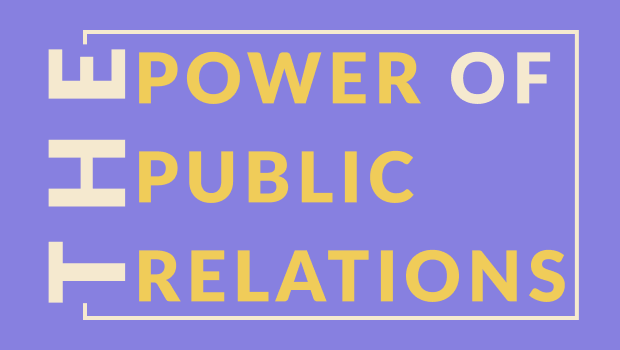
The Power of Public Relations: Mastering Media Outreach, Image Management, Press Release Writing, Content Creation, and News Release Distribution
In today's fast-paced world of business, building and maintaining a strong brand reputation is more important than ever. And that's where Public Relations (PR) comes in, as it focuses on building trus...

Building a Strong Brand: The Guide to Brand Development, Logo Design, Brand Strategy, Content Writing, and Web Design & Development
Building a strong brand is essential for businesses of all sizes. It helps create brand awareness, build credibility, and establish a positive reputation among customers and stakeholders. In today's d...

Ultimate Guide to Digital Marketing: Mastering SEO, PPC, Email Marketing, Social Media Ads, and Content Marketing
Digital marketing has become essential in today's business world. It helps businesses of all sizes attract, engage, and convert potential customers into loyal brand advocates. Digital marketing compri...

Building Your Brand Online: Steps for Success
Building a strong brand online is crucial in today's digital age. Whether you're an aspiring actor, musician, or any creative professional, establishing your brand presence can open doors to exciting ...

8 Ways to Boost Your Acting Career
Embarking on an acting career requires dedication, perseverance, and a strategic approach. While the path to success may not always be straightforward, there are certain steps you can take to boost yo...

How To Handle Rejection
“As actors, we have to deal with rejection so much more than any other business. So I don’t care how much of a genius you are, if you don’t have the propensity to be able to get back up every ti...
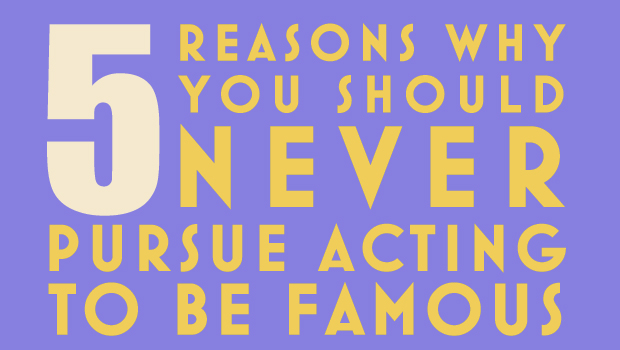
5 Reasons Why You Should Never Pursue Acting To Be Famous
“I want to be an actor!” Even just admitting those words is a huge step in the direction of your dreams. For a lot of people it’s a scary step because it finally becomes real when you say it out...

The Art of Modeling: Tips for Posing, Runway Success, and Fashion Modeling
Welcome to the glamorous world of modeling, where showcasing your unique style and personality takes center stage. Whether you dream of strutting down runways, gracing magazine covers, or becoming the...
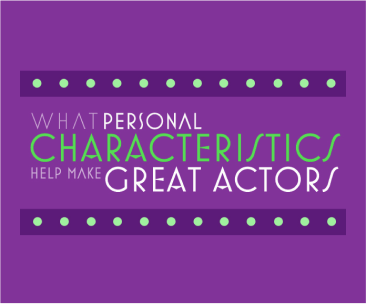
10 Personality Characteristics That Make Great Actors
What personal characteristics help make GREAT ACTORS? This is probably a question that will intrigue a lot of people. What is it about certain people who make them great performers? Or at least have ...

Comedy Acting: Is It Innate, Or Can It Be Learned?
Comedy Acting: There’s an old adage, “dying is easy: comedy is hard.” This is very true — comedy is difficult because it requires a certain amount of spontaneity, creativity, and ability to pl...
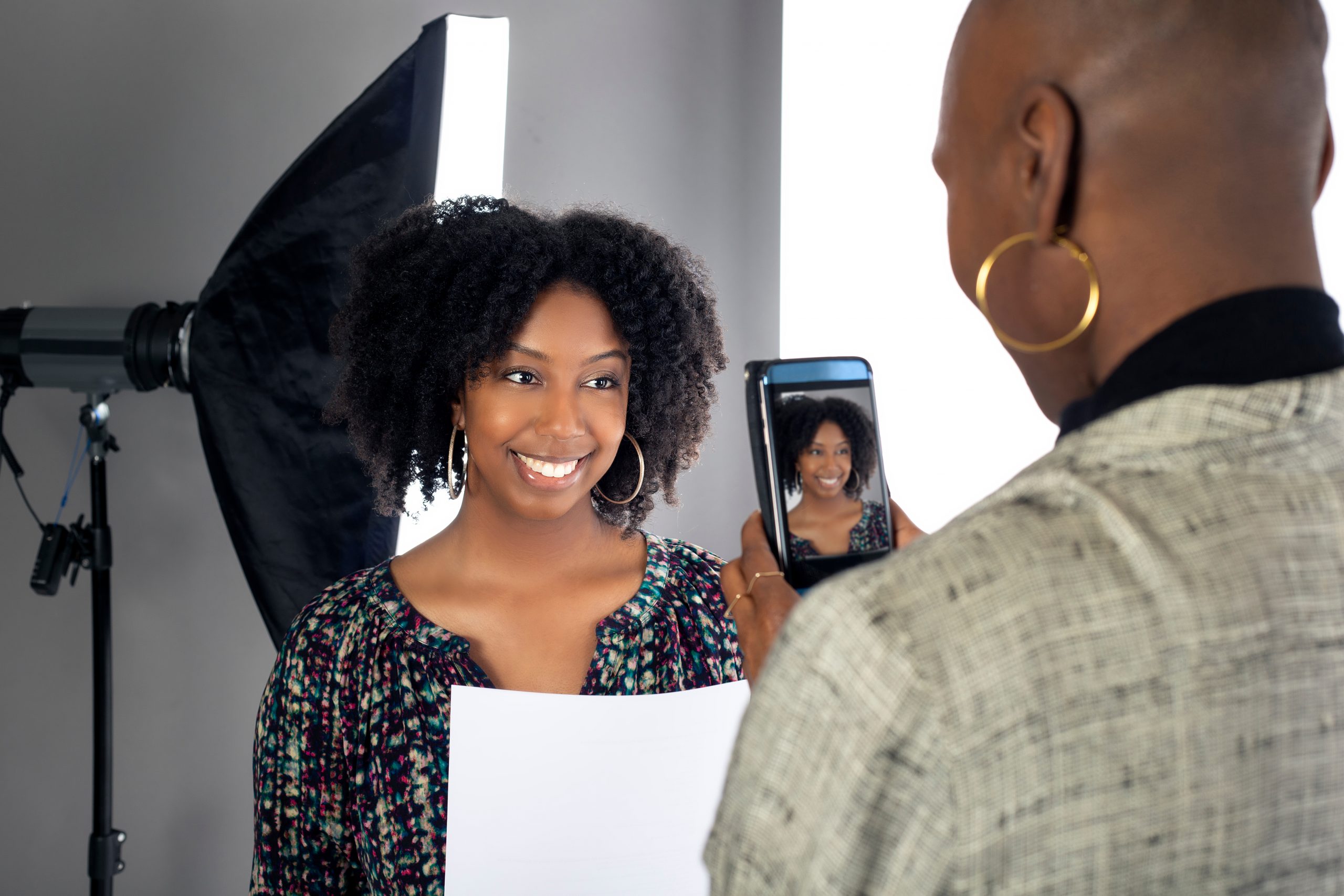
Audition Etiquette Dos and Don’ts for Self-Tape Auditions
In today's digital age, self-tape auditions have become an integral part of the casting process. With the convenience and flexibility, they offer, more actors are embracing the opportunity to showcase...

10 Ways To Build A Loyal Social Media Following
In the era of technology and social media, building a strong social media following is essential for anyone looking to establish their brand or boost their online presence. Whether you're an influence...

8 Voice Over Tips For Actors
Whether you want to improve your voice work, or simply just get started in the voice over industry, it’s definitely a great tool for an actor. Voice work should not be taken lightly as it’s just a...

7 Ways To Market Yourself As An Actor
Marketing and promotion are important for actors at every stage and something that should not be overlooked. Here we look at ways YOU can build a smart marketing strategy and start to create a profess...

9 Ways To Become A Better Comedic Actor
Whether you believe it or not, you don’t have to be a stand up comedian to be a good comedic actor. In fact, a good portion of the best comedy actors would be fish out of water if they ever tried st...

5 Insider Tips for a Successful Career in the Entertainment Industry
Breaking into the entertainment industry can be an exciting yet challenging journey. At AMP Talent Group, we understand the complexities and hurdles aspiring artists face....

5 Ways To Prepare For Your Audition
The truth is that some people can be great actors but terrible at auditions. There’s the pressure, the nerves, and the last minute notice that can sometimes eat away at a person to the extent that t...

Amplifying Horizons: The Global Journey of Excellence with AMP Talent Group and AMP it up PR
Explore the dynamic world of AMP Talent Group and AMP it up PR, where innovation meets global influence in the entertainment and PR agencies near me, industry. This blog post delves into their journey...

Amplify Your Brand: Discover Toronto’s Top Influencer and Public Relations Agency
Explore the transformative power of AMP it up PR, Toronto's award-winning influencer and public relations agency. Dive into our bespoke services in publicity, PR, digital marketing, and branding desig...

Mastering the Entertainment Industry: Your Path with AMP Talent Group
Dive into the heart of the entertainment world with 'Mastering the Entertainment Industry: Your Path with AMP Talent Group.' Whether you're exploring casting agencies in Toronto, seeking top talent ag...

Let The Dream Success Come Alive For Your Personal And Professional Ventures
Being a top talent, model, and branding agency situated in Toronto, Ontario, we at AMP Talent Group take great pride in our work. We understand that brands and public figures must have a robust online...

20 Years of AMP TALENT GROUP: Navigating the Evolution of Talent, PR, Digital, and Influencer Marketing
As the countdown begins to the much-anticipated year of 2024, AMP Talent Group talent agency and pr agency proudly reflects on an extraordinary journey that began in 2004. From our humble roots as a T...

Finding the Perfect Voice: Your Ultimate Guide to Choosing the Right Voice-Over Talent in New York:
In the bustling world of entertainment and branding, finding the perfect voice over talent agencies is a critical step toward creating memorable and impactful content. Whether you're producing commerc...

Elevating Brand Eminence: A Strategic Guide to Media Publications by AMP It Up PR, Your Leading Digital Marketing Agency in Toronto, New York, and Los Angeles
In the fast-paced world of business, establishing your brand as a household name demands strategic visibility in reputable media publications—online, in magazines, and across various platforms. This...

Decoding the Role of Digital Marketing Agencies: Unveiling the Magic Behind Success
In the dynamic realm of online promotion, understanding the functions of a digital marketing agency is key. Let's unravel the intricate tapestry of services these agencies offer and how they contribut...

Unlocking Success in the Digital Realm with AMP It Up PR
In the bustling landscapes of Toronto, New York, Los Angeles, and beyond, AMP It Up PR emerges as the beacon of distinction in the realms of PR and digital marketing. As an award-winning agency, our c...

Unleashing Your Potential: Essential Modeling Tips for Success
Welcome to the exciting world of modeling! Whether you're just starting out or looking to take your career to the next level, this blog post is packed with essential tips and expert advice to help you...

Unlocking Success: The Importance of a Well-Designed Website for Artists, Brands, and Businesses
In today's digital age, a strong online presence has become paramount for artists, brands, and businesses alike. It is no wonder that a well-designed website has become a powerful tool in unlocking su...

The Top 10 Must-Read Books for Aspiring Actors: Unleashing the Power Within
Are you an aspiring actor with the desire to take your craft to the next level? Whether you're just starting on your acting journey or looking for ways to further hone your skills, reading books dedic...

Unleashing the Power of Influencer Marketing: Ignite Your Brand’s Success
In today's digital realm, traditional advertising methods are no longer enough to capture the attention and trust of a savvy consumer base. As people increasingly turn to social media and online platf...

10x Your Business or Brand: Amplify your Reach with Media Publications and Publicity
In a highly competitive business landscape, it's crucial for entrepreneurs and brands to find innovative strategies that can propel their growth to new heights. One such strategy that holds immense po...

Unleashing the Power of Publicity: Why You Need a Publicist for Your Success
In the fast-paced world of business and entertainment, standing out from the crowd is essential. Whether you're an aspiring artist, a budding entrepreneur, or a seasoned professional, getting noticed ...

Lessons Learned: Our Journey as a Talent and Branding Agency
At AMP Talent Group, our journey as a talent and branding agency has been filled with valuable experiences and lessons learned. We are incredibly excited to share that our achievements have been recog...

Unveiling the Top Logo Branding Trends of 2023: A Visual Revolution
In today's fiercely competitive business landscape, the importance of a well-designed logo cannot be overstated. As logo branding continues to evolve, staying updated on the latest trends is crucial f...

Celebrating AMP Talent Group: Honoured as a Top Branding Agency That Delivers Results by DesignRush!
We are thrilled to announce that AMP Talent Group has been honored as a Top Branding Agency That Delivers Results by DesignRush. This prestigious recognition not only reflects our dedication to excell...

Getting Noticed: A Guide to Grabbing Casting Directors’ Attention and Landing Auditions
Breaking into the world of acting can be challenging, but one of the most crucial aspects of building a successful career is getting seen by casting directors. These gatekeepers of acting opportunitie...

The Power of Influencer Marketing: How to Use Influencers to Boost Your Brand and Reach Your Target Audience
Social media has created a new breed of celebrity: influencers. Marketers are using these influencers, who have a significant following on social media platforms, to promote their brands. Influencer m...

The Power of Public Relations: Mastering Media Outreach, Image Management, Press Release Writing, Content Creation, and News Release Distribution
In today's fast-paced world of business, building and maintaining a strong brand reputation is more important than ever. And that's where Public Relations (PR) comes in, as it focuses on building trus...

Building a Strong Brand: The Guide to Brand Development, Logo Design, Brand Strategy, Content Writing, and Web Design & Development
Building a strong brand is essential for businesses of all sizes. It helps create brand awareness, build credibility, and establish a positive reputation among customers and stakeholders. In today's d...

Ultimate Guide to Digital Marketing: Mastering SEO, PPC, Email Marketing, Social Media Ads, and Content Marketing
Digital marketing has become essential in today's business world. It helps businesses of all sizes attract, engage, and convert potential customers into loyal brand advocates. Digital marketing compri...

Building Your Brand Online: Steps for Success
Building a strong brand online is crucial in today's digital age. Whether you're an aspiring actor, musician, or any creative professional, establishing your brand presence can open doors to exciting ...

8 Ways to Boost Your Acting Career
Embarking on an acting career requires dedication, perseverance, and a strategic approach. While the path to success may not always be straightforward, there are certain steps you can take to boost yo...

How To Handle Rejection
“As actors, we have to deal with rejection so much more than any other business. So I don’t care how much of a genius you are, if you don’t have the propensity to be able to get back up every ti...

5 Reasons Why You Should Never Pursue Acting To Be Famous
“I want to be an actor!” Even just admitting those words is a huge step in the direction of your dreams. For a lot of people it’s a scary step because it finally becomes real when you say it out...

The Art of Modeling: Tips for Posing, Runway Success, and Fashion Modeling
Welcome to the glamorous world of modeling, where showcasing your unique style and personality takes center stage. Whether you dream of strutting down runways, gracing magazine covers, or becoming the...

10 Personality Characteristics That Make Great Actors
What personal characteristics help make GREAT ACTORS? This is probably a question that will intrigue a lot of people. What is it about certain people who make them great performers? Or at least have ...

Comedy Acting: Is It Innate, Or Can It Be Learned?
Comedy Acting: There’s an old adage, “dying is easy: comedy is hard.” This is very true — comedy is difficult because it requires a certain amount of spontaneity, creativity, and ability to pl...

Audition Etiquette Dos and Don’ts for Self-Tape Auditions
In today's digital age, self-tape auditions have become an integral part of the casting process. With the convenience and flexibility, they offer, more actors are embracing the opportunity to showcase...

10 Ways To Build A Loyal Social Media Following
In the era of technology and social media, building a strong social media following is essential for anyone looking to establish their brand or boost their online presence. Whether you're an influence...

8 Voice Over Tips For Actors
Whether you want to improve your voice work, or simply just get started in the voice over industry, it’s definitely a great tool for an actor. Voice work should not be taken lightly as it’s just a...

7 Ways To Market Yourself As An Actor
Marketing and promotion are important for actors at every stage and something that should not be overlooked. Here we look at ways YOU can build a smart marketing strategy and start to create a profess...

9 Ways To Become A Better Comedic Actor
Whether you believe it or not, you don’t have to be a stand up comedian to be a good comedic actor. In fact, a good portion of the best comedy actors would be fish out of water if they ever tried st...

5 Insider Tips for a Successful Career in the Entertainment Industry
Breaking into the entertainment industry can be an exciting yet challenging journey. At AMP Talent Group, we understand the complexities and hurdles aspiring artists face....

5 Ways To Prepare For Your Audition
The truth is that some people can be great actors but terrible at auditions. There’s the pressure, the nerves, and the last minute notice that can sometimes eat away at a person to the extent that t...




